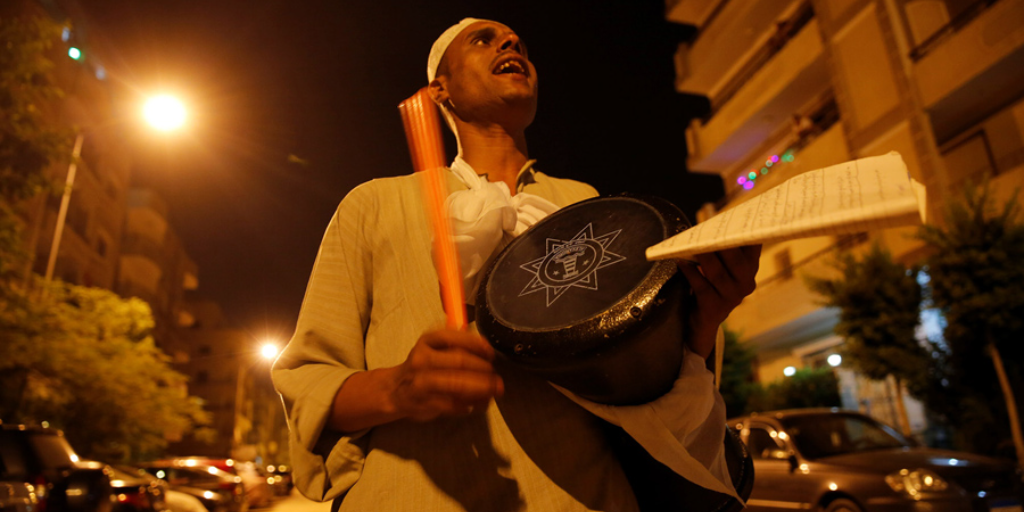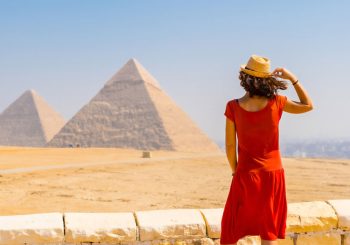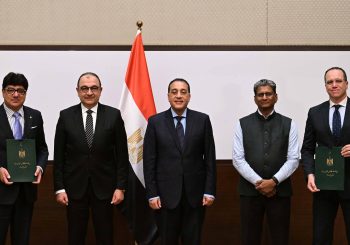“Es’ha ya nayem, wahed el dayem” (Wake up you who is asleep, praise the Almighty),
“Am Sayed, Ali, Abdo, Ostaz Ashraf, Captain Mahmoud, wahedo Allah” (Am Sayed, Ali, Abdo, Ostaz Ashraf, Captain Mahmoud, believe in the oneness of Allah).
With these chants and a small drum in his hand, the mesaharaty roams the streets chanting to wake people up. Like many traditions that only come into being during Ramadan, the mesaharaty is a man who walks the street at night and calls upon Muslims to wake up for Sohour meals and begin their fast.
Sohour is the last meal that Muslims eat before they begin fasting from sunrise to sunset during Ramadan.
Out of pure fascination, children often join him, running around and asking him to say their names during his call.
Although he is not usually paid for his job, many are accustomed to giving the mesaharaty a small amount as a token of appreciation for his efforts during the holy month. In most cases, the mesaharaty works another job all year.
A popular icon of Ramadan, the mesaharaty is not a job one applies for, but rather an inherited one.
According to several sources, the practice dates back to the time of the Abbasids, where Otbat bin Ishaq, Egypt’s governor at the time, acted as the first known mesaharaty in history.
Despite multiple technological advancements and the introduction of various methods like alarms and reminders that would serve the same purpose, this age-old Ramadan tradition has remained alive in Egypt, among other Arab countries.
Although the tradition is slowly fading, many Muslims believe the mesaharaty is one of the main symbols of Ramadan, and his presence is what makes them feel the essence of the holy month.







Comments (4)
[…] rituals that are only observed in Ramadan in Egypt. From decorations adorning every street to the mesaharaty’s voice every night for suhoor, the Ramadan experience in Egypt truly is […]
[…] مساحراتي: تقاليد رمضانية متجذرة وشعبية […]